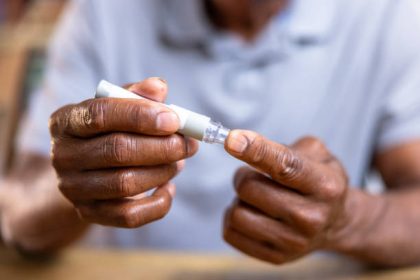Depression, on average, affects more women due to early puberty, menses, pregnancies, pre-menopausal age
Depressive disorder is a common mental disorder characterized by a persistently low mood or loss of interest in once enjoyable activities. It can affect all aspects of life, including family, relationships, friends and community. Additionally, it can be work or school related.
Of note is, that none of us is immune to it, everyone is struggling in one way or another, regardless of age, income status, gender, and nationality. People who have lived through stressful events, severe losses, or abuse are prone to developing depression. Worst of all, suicide emanates from depression.
The World Health Organization (WHO) projects that more than 700,000 people worldwide die by suicide yearly, and by 2019 was ranked the fourth leading cause of death among 15 to 29-year-olds and is thus a public health concern. Other effects of depression include unemployment, strained relationships and substance abuse.
The latest statistics project an alarming number of depression cases in Kenya, in consistence with the Kenya Aids NGOs Consortium (KANCO) at least 20-25% of the population is affected while WHO ranks Kenya fifth in comparison with other African countries, calling for desperate measures.
As much as depressive disorders affect both genders, they are more prevalent in women than men. The reasons for the high female prevalence are, females experience early puberty hence depression spans through their lives, they also experience depression before menstruation, following pregnancies, and at pre-menopausal age. Since the above ages are hormonal dependent, hormonal fluctuation events have been identified as triggers for depression.
Also, it is better to distinguish depressive episodes from regular mood fluctuations. Depressive episodes happen at least daily for at least a fortnight. Other symptoms include; but are not limited to poor concentration, feelings of excessive guilt or low self-esteem, hopelessness about the future, suicidal thoughts, sleep disruptions, loss of appetite or weight loss, and feeling extremely exhausted or tired despite not engaging in extraneous activities.
Social factors that significantly contribute to depression include unemployment and bereavement; individuals in the above stages in life are prone to developing depression. Notwithstanding, psychological factors such as decreased self-esteem and increased self-stigma resulting from the daily discrimination experienced or perceived play a crucial role. Biological factors that might have some effect on depression include; genetic predisposition, hormonal imbalance, and chemical changes in the brain. An interaction of the above mentioned factors, results in depression.
In addition to the above highlighted major causes, politics has been identified as a contributing factor. It has been thought to seep into individual’s daily lives, thus negatively impacting mental health, but again disengaging has implication, hence calls for moderation in matters politics. Additionally changes in climate such as drought, heavy rains, and global warming are disastrous. They lead to unplanned migration thus acculturating stress.
On average, urban dwellers are also prone to depression mostly due to their harmful surroundings such as noise, air pollution, loneliness, and lack of sunlight on the ground floor of a high-rise apartment unlike the rural counterparts. Social media plays a significant role in matters depression. Uniquely, both over and underexposure are unhealthy.
Overexposure to social media can overstimulate the brain’s reward centre, hence triggering pathways comparable to addiction. This results in sleep problems, attention issues and feelings of exclusion in adolescents. On the other hand, fear of missing out also plays a role. Instances where everyone is using social media, and one doesn’t join in there is concern that they might miss out jokes, connections or invitations. Missing out can cause depression and mitigating this moderation is crucial.
Finally, Kenyans work towards middle income status. The high expectations means burning the midnight oil thus long working hours, physical inactivity, sleep disruptions, and loss of connection to high power hence depression. In addition, there comes the comfort crisis. In that the more affluent we become, the less tolerant we become to discomfort. Our tolerance for discomfort lowers, hence our dopamine response is changed. This mismatch between increased income and the greedier one becomes, the more the expectations. In other words, addiction to comfort is easy, but then the habit attracts laziness.
Coping with depression challenges can be daunting, but there are effective strategies that can have a positive impact on one’s life. They may sound basic, but they play a significant role. One key approach is to prioritize self-care, which includes regular exercising, proper nutrition, adequate sleep, and incorporating relaxation techniques such as taking deep breaths, meditation, music therapy, biofeedback, or yoga. Investing in a good support network of friends, family members, or mental health professionals can also provide crucial emotional support during tough times. Additionally, setting realistic achievable goals, managing stress effectively, and engaging in hobbies or activities that bring one joy can contribute to better mental well-being.
However, despite one’s best efforts, there may be times when push comes to shove. Depression management gets out of hand, hence necessitating seeking professional input. This includes a qualified mental health professional, this is usually viewed as a bold move and a sign of strength, not weakness.
Therapy, counseling, or medication may be recommended at this point, depending on the individual’s needs and severity of symptoms. These interventions can make a significant difference in managing mental health conditions. It is therefore important to remember that seeking help is a proactive step towards better mental health and overall well-being.
For individuals struggling with mental health challenges, it is essential to remember that you are not alone in these. There are resources available to support you on your journey towards better mental health. The Chiromo Hospital Group toll-free hotline (080022000) is available around the clock, 365 days a year, online support groups like Tufunguke, and community mental health centres are valuable resources that can offer guidance, information, and emotional support. Since speaking out and available support systems have been identified as key players in fighting depression.
Dr Rachel Kerubo is the Resident Medical Officer – Department of Internal Medicine, Nyamira County Referral Hospital.


























